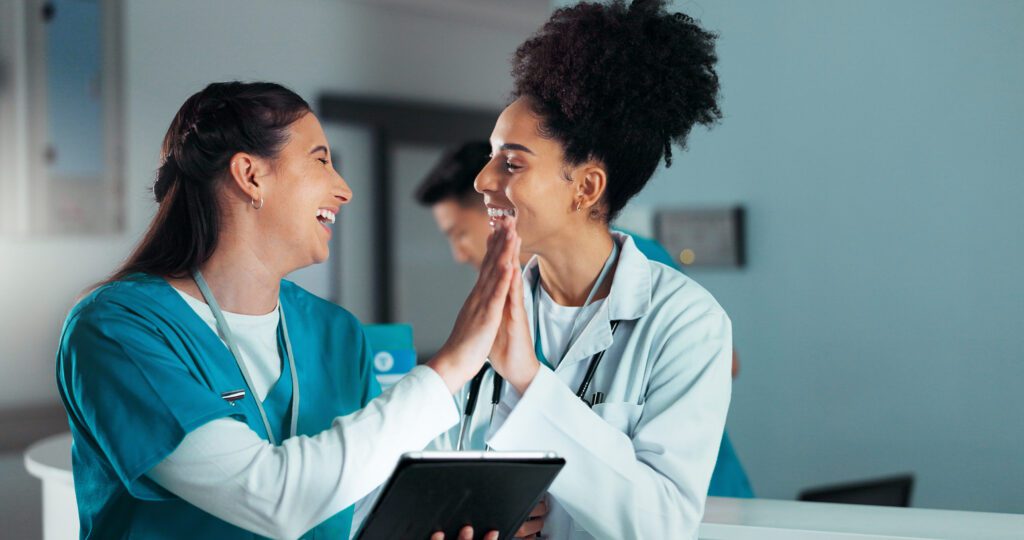by RYAN MILEJCZAK
Sponsored by Central Florida Health Care
Doctors are the cornerstone of healthcare, and their contributions to our wellbeing are undeniable. But they’re far from the only people that help make healthcare happen; equally as essential are the nurses who assist them, especially Licensed Practical Nurses (LPNs).
“Our organization has 80 LPNs right now,” says April McCoy, director of nursing for Central Florida Health Care and a former LPN herself. “These nurses have gone to school and learned how to take care of their patients.”
This training empowers LPNs to provide care in a variety of ways.
“Most schools teach LPNs in ‘blocks’ broken up into categories, such as pharmacology, geriatrics, obstetrics, and so forth, so students can go over all the areas of nursing,” McCoy explains.
Thanks to this in-depth education, LPNs are able to perform a wide range of tasks, from wound care to IVs and injections and much more. This makes them essential for any healthcare provider and even more so at a Patient-Centered Medical Home like Central Florida Health Care.
“A Patient-Centered Medical Home is basically a collaborative approach to healthcare,” McCoy explains. “It brings our whole team together to address and coordinate the care of the patient. The goal is to give them the most optimal experience both at that time, and in the future.”
This means ensuring a patient is listened to and that all their healthcare needs are met by coordinating with every other area of the organization.
“Take, for example, a patient that is being seen in the primary healthcare area who has diabetes and needs to see an endocrinologist. I would partner with our endocrinologist to talk about the patient’s health and why I feel like they need a referral for that area,” McCoy says. “It’s all about connecting internally to ensure that we can do what’s best for our patients without having to send them to multiple locations.”
To ensure this, CFHC strives to offer as many healthcare options as possible. That way, getting care is as convenient as possible. And LPNs are essential to making that happen.
“LPNs are so important to what we do,” McCoy reflects. “These nurses are highly trained, with tons of clinical hours doing all the appropriate things to ensure they’re able to take care of patients. They’re a very important piece of our organization.”
At CFHC, LPNs form an active part of providing patient care.
“Our nurses and physicians collaborate to ensure they’re on the same page about patients coming in for the day. They have huddles throughout the day to plan and ensure they’re doing the best for patients and have everything they need.”
McCoy also emphasizes the attention to detail the organization’s LPNs have.
“LPNs pay great attention to detail, one of the main things you need as a nurse,” she says. “That attention to detail can make or break a situation.”
McCoy gave an example of just one part of the important work their LPNs are doing right now.
“Currently, our LPNs are working hard to get vaccinations done for pediatric and adult patients. They’re building trust and rapport with our patients, ensuring they’re well taken care of and well prepared for any future appointments,” she recounts.
This trust and rapport is essential to what LPNs do at CFHC.
“Trust is a big thing with patients,” adds McCoy. “It makes the patient a whole lot more comfortable and lets them be more honest and take better care of themselves, keeping them informed of health concerns and participating in their own decisions around their healthcare, which leads to them adhering better to their provider’s suggestions.”
